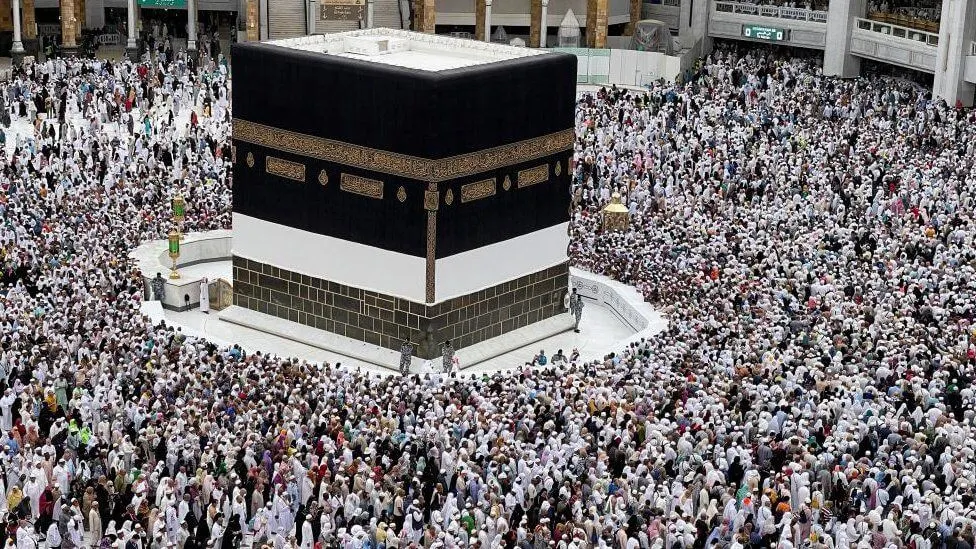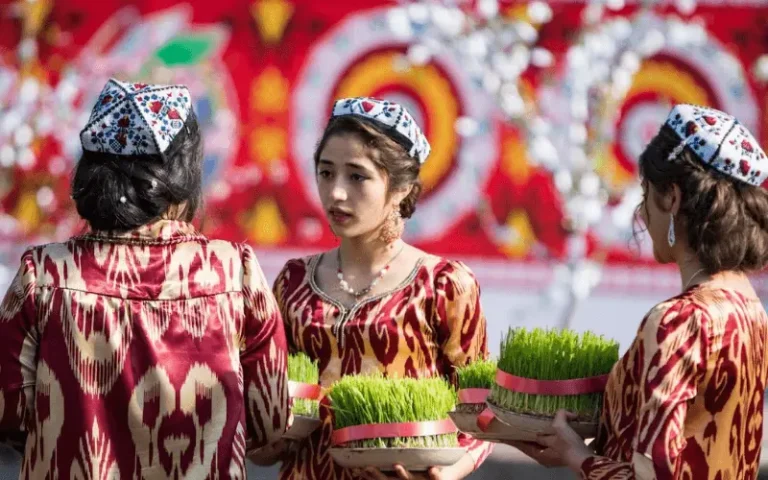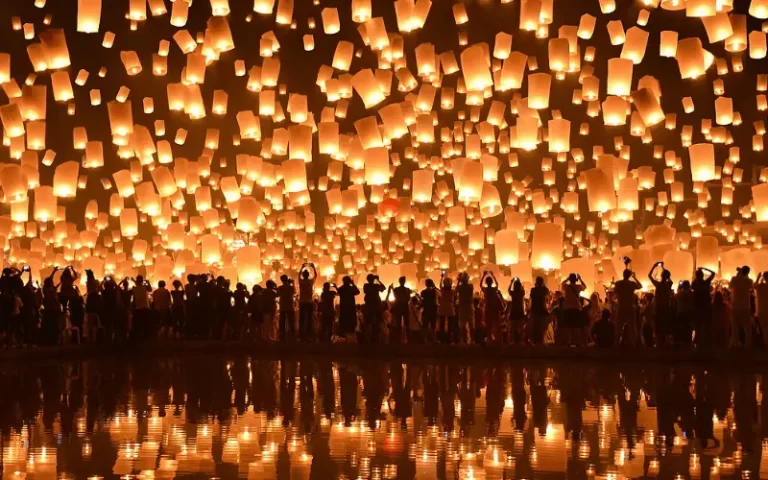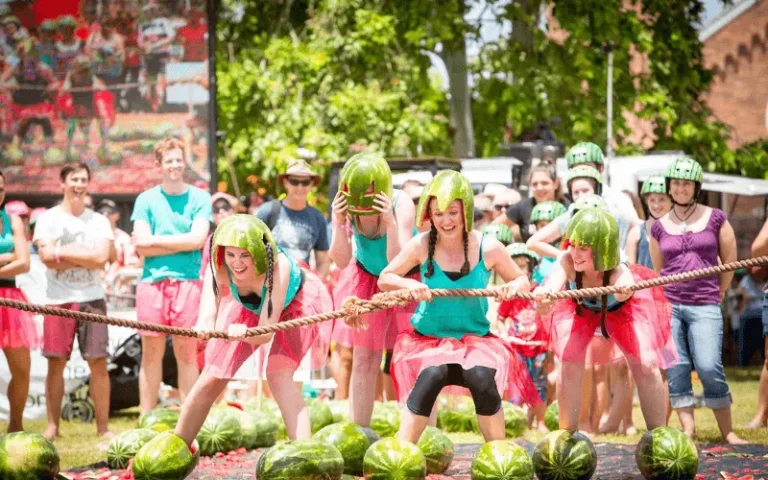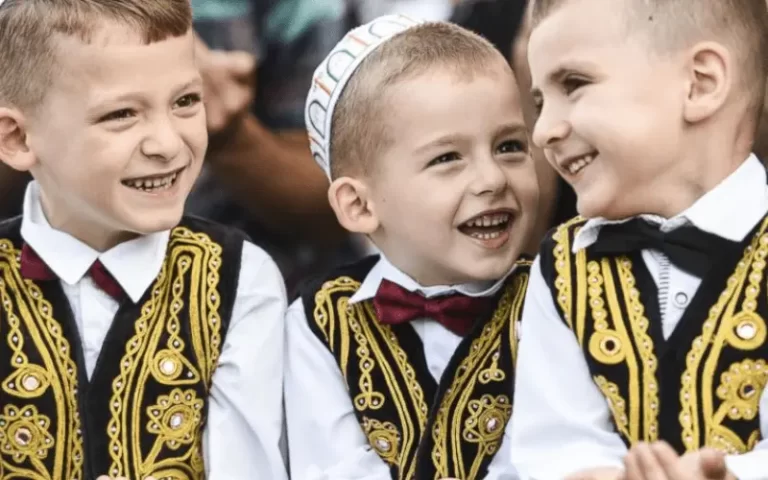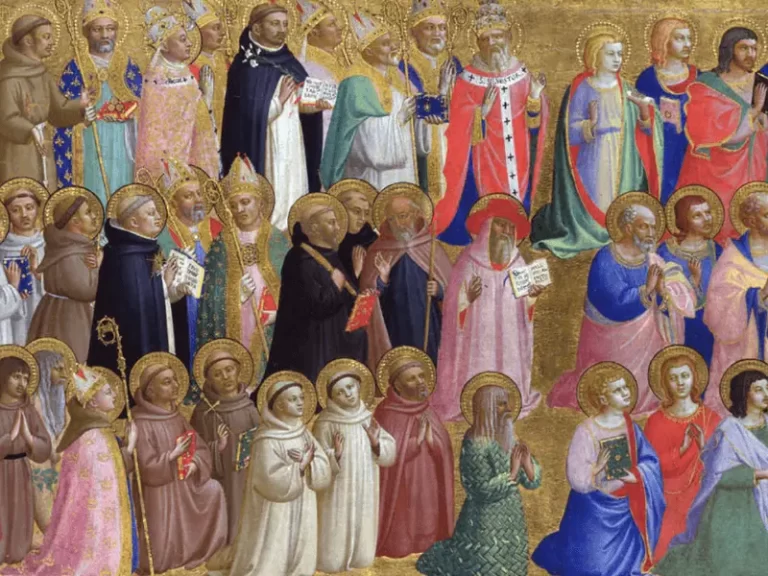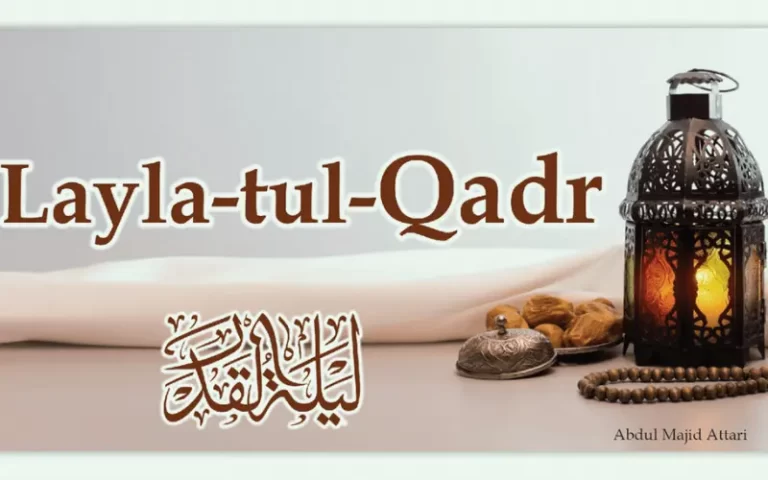Ramadan
Ramadan is an Arabic word رَمَضَان (Ramaḍān), which is also spelled as Ramazan, Ramzan, Ramadhan, or Ramathan. Ramadan is the ninth month of the Islamic lunar calendar. This month holds deep significance for Muslims worldwide. This month is recognized for its profound spiritual undertakings, observed by Muslims through fasting from dawn until sunset.
This sacred month serves as a commemoration of the Quran’s revelation to Prophet Muhammad (peace be upon him), signifying a period of introspection, increased prayer, and charitable acts among the Muslim community. Fasting month isn’t solely about abstaining from food and drink, it represents a spiritual journey, encouraging believers to strengthen their connection with Allah through fasting, prayer, and acts of kindness. This month stands as a time of heightened spirituality and renewed devotion to the Muslim faith.
let’s see the dates of Ramadan and Eid in 2023, 2024, 2025, and 2026.
Dates for Ramadan
| Year | Ramadan Start date | Ramadan End date | Eid ul Fitr date |
|---|---|---|---|
| 2023 | 23 March (Thursday) | 20 April (Thursday) | 21 April (Friday) |
| 2024 | 11 March (Monday) | 9 April (Tuesday) | 10 April (Wednesday) |
| 2025 | 1 March (Saturday) | 30 March (Sunday) | 31 March (Monday) |
| 2026 | 18 Feb (Wednesday) | 19 March (Thursday) | 20 March (Friday) |
Did you know?
In 2030, the Muslim community is set to celebrate two Ramadans and two Eids a double dose of joy, blessings, and unity.
Table of Contents
Who Is Obliged to Fast in the Month of Ramzan?
Fasting in Ramazan is obligatory for adult Muslims who are physically and mentally able to fast. This obligation includes individuals who have reached puberty, are in good health, and are not traveling or experiencing any conditions that exempt them from fasting.
What are the Conditions allowing exemptions from fasting?
Obligation to Make Up Missed Fasts During Ramazan
Those who are unable to fast due to valid reasons are required to make up for missed fasts at a later time, if possible, as a way to fulfill this religious obligation.
Why do Muslims fast in the month of Ramazan?
Fasting is one of the pillar of Islam. Muslims must fast in the month of Ramazan. Fasting also gives spiritual, physical, and mental benefits to Muslims that’s why muslims fast in the month of Ramadan.
The Benefits of Fasting During Ramazan

Maher Zain’s ‘Ramadan’ captures the soulful essence of this sacred month, portraying the heartfelt emotions and devotion of Muslims worldwide. Experience the beauty of Ramadan through his enchanting music.
This month-long practice encourages believers to strengthen their relationship with God, purify their hearts, and seek forgiveness, fostering a sense of unity and solidarity within the Muslim community worldwide.
Fasting is not only helpful for Muslims in a spiritual sense but it also benefits the individual physically. Research has shown numerous potential benefits associated with fasting such as Improved Metabolic Health, Cellular Repair and Autophagy, Heart Health, Brain Function, Longevity, Enhanced Immune Function, Potential Cancer Support, and many more.
Now let’s talk about the Rituals and Practices Muslims follow in the month of Ramazan.
| Event | Ramadan |
|---|---|
| Duration | 29 or 30 days |
| Special Night | Laylat al-Qadr (Night of Power) |
| Religion | Islam |
| Frequency | Annually in the Islamic lunar calendar |
Rituals and Practices of Ramazan
1. Fasting
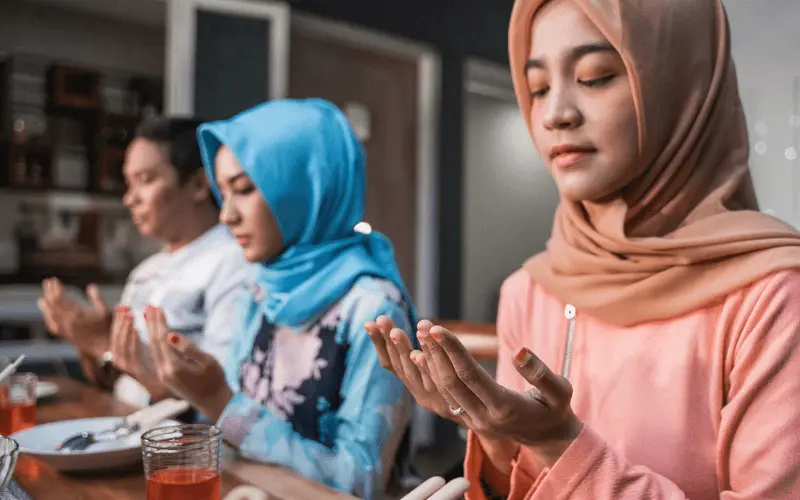
Muslims Fast during Ramazan which is the most compulsory practice that Muslims do in the month of Ramadan worldwide. In Fast Muslims abstinence themselves from food, drink, and other worldly desires from dawn (Fajr) to sunset (Maghrib).
2. Suhoor and Iftar (Special Ramazan Meals)
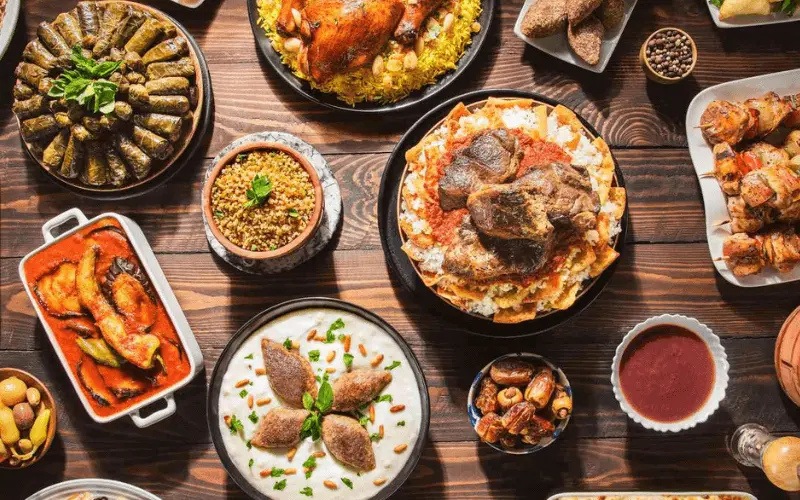
In the month of fasting Muslims eat the two most important meals in a day which are Suhoor It’s a time to have a nutritious meal to prepare for the day ahead. and Iftar is the evening meal to break the fast at sunset. It’s a joyous time when families and communities come together to break their fast, often starting with dates and water, followed by a meal.
3. Taraweeh prayers
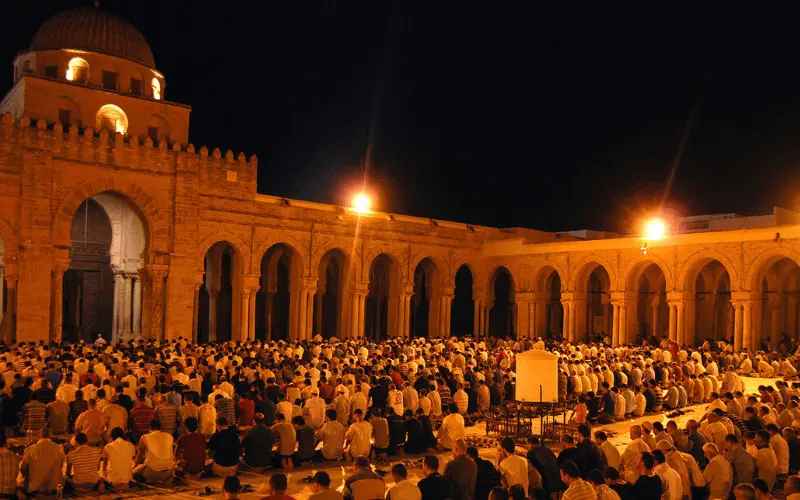
Taraweeh prayers are special nightly prayers performed during Ramazan after the Isha prayer. These prayers are held in congregation at mosques and involve recitation of portions of the Quran. It’s a time of spiritual reflection and a chance to complete the Quran’s recitation by the end of Ramadan.
4. Reading and understanding the Quran during Ramazan
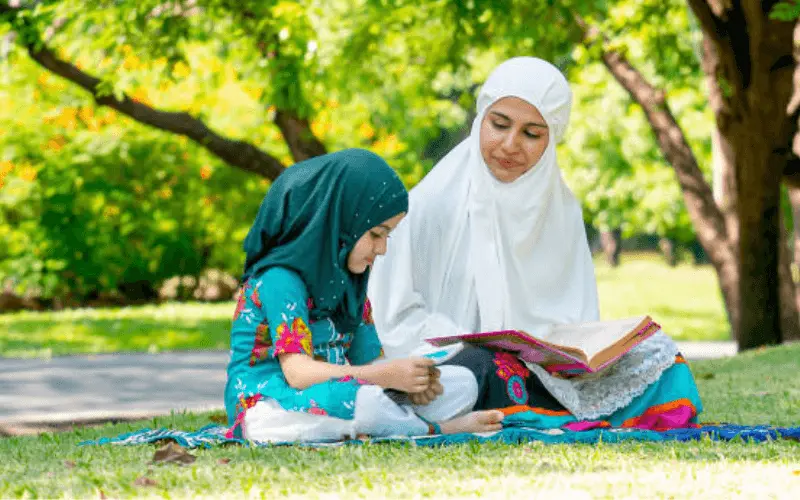
This is the most common practice Muslims start the Quran from the start with the target of completing it whole by the end of Ramazan. Also, Muslims arrange community gatherings in which the Quran is learned by its translation in this special month.
5. Acts of charity and giving during the month
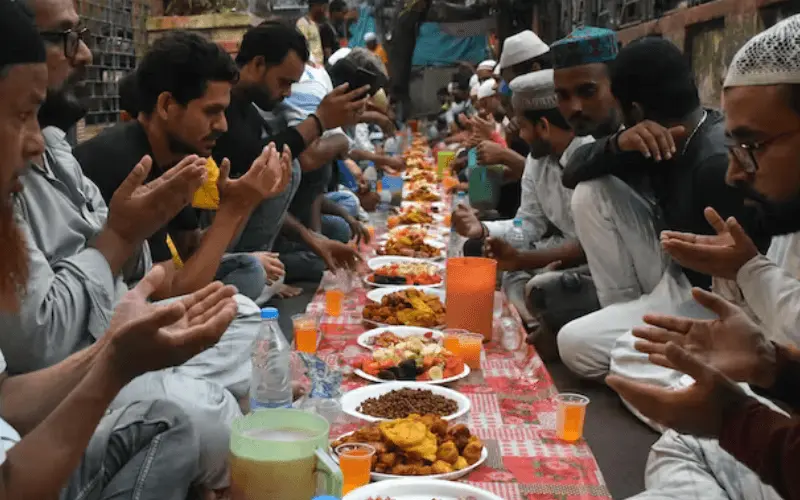
During Ramazan, people focus a lot on helping others. They give money, food, or clothes to those who need it. This helping is called charity. Muslims believe it’s really important to be kind and share what they have, so they often give to those who are less fortunate. They do this to show compassion and to support their community. It’s a way of bringing everyone together and making sure everyone feels cared for during this special time.
Ramadan for Kids
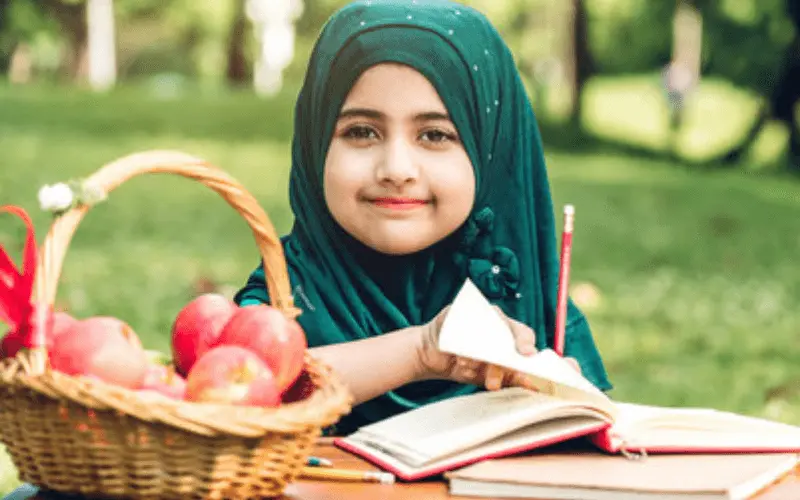
Ramazan isn’t just for grown-ups. It’s a special time when families and friends come together to fast, pray, and do good things. Even though kids don’t fast like adults, they can still join in the Ramadan spirit. They can do small acts of kindness, learn more about their beliefs, and enjoy special meals like Iftar with everyone. For kids, Ramazan is a time to understand kindness, sharing, and feeling close to their families and community. They can decorate their homes, give to charity, help those fasting, and even make easy date recipes to be part of this beautiful time.
Duas (Supplications) you have to recite in each Ashra of Ramadan
First Ashra (First Ten Days) – Days of Mercy
رَبِّ اغْفِرْ وَارْحَمْ وَأَنْتَ خَيْرُ الرَّاحِمِينَ
Transliteration: rabbighfir warham wa anta khairur-rahimeen
Translation: O my Lord! forgive and have mercy and thou art the best of the merciful one
Second Ashra (Second Ten Days) – Days of Forgiveness
أسْتَغْفِرُ اللهَ رَبي مِنْ كُلِ ذَنبٍ وَأتُوبُ إلَيهِ
Transliteration: Astaghfirullah rabbi min kulli zambiyon wa atoobu ilaiyh
Translation: I ask forgiveness of my sins from Allah who is my Lord and I turn towards Him.
Third Ashra (Final Ten Days) – Days of Salvation
اَللَّهُمَّ أَجِرْنِي مِنَ النَّار
Transliteration: Allahuma Ajirni minan naar
Translation: O Allah, save me from the fire (Jahannam)
Ramadan Celebrations
The important celebration that takes place in the month of Ramadan are:
Moon Sighting and its Role in Ramadan
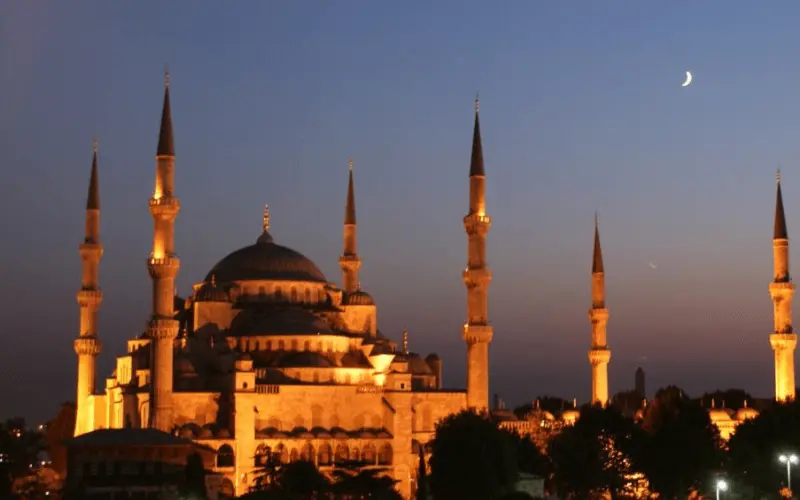
Moon Sighting at the start and end of Ramadan is very important. The new moon marks the beginning of the lunar month, and sighting it confirms the commencement of Ramadan. Similarly, the sighting of the new moon after 29 or 30 days concludes Ramadan, leading to the celebration of Eid Al-Fitr. The process of moon sighting maintains the adherence to the Islamic lunar calendar, guiding the observance of this sacred month.
I’tikaf
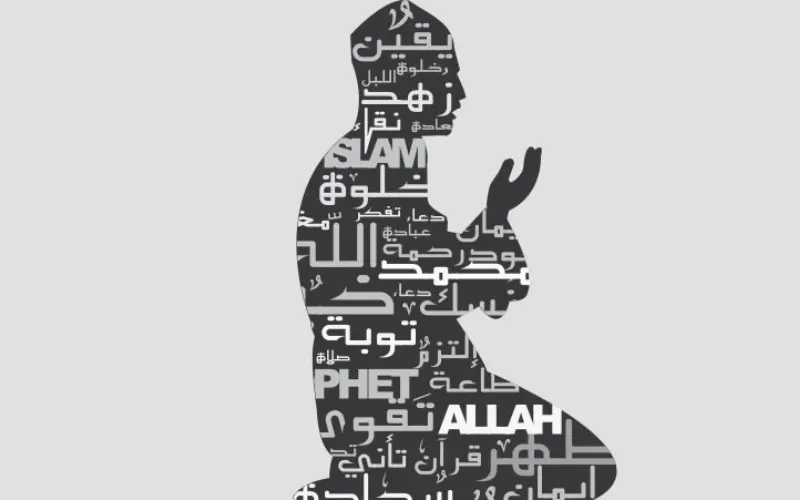
In I’tikaf Muslim individuals retreat to the mosque for the last ten days of Ramadan, dedicating themselves to worship, reflection, and seeking closeness to Allah. It’s a time of Isolation and intensified devotion, focusing on spiritual purification.
The Night of Power (Laylat al-Qadr)
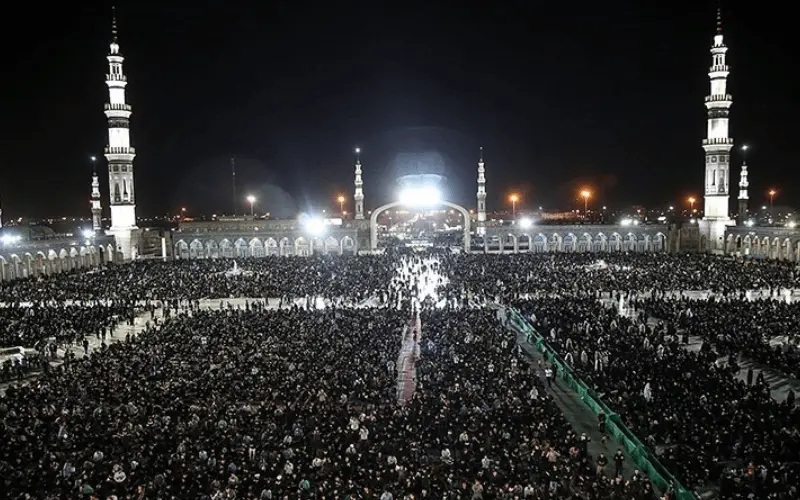
Laylat al-Qadr, known as the Night of Power, falls within the last ten nights of Ramadan. It holds immense spiritual significance as it’s believed to be the night when the Quran was first revealed. Muslims spend this night in prayer, seeking forgiveness, blessings, and guidance. This night is considered the most important night in Ramadan. If you wanna know all about this most important and Holy Night then click the link below.
Night of Power 2024: Laylat al Qadr and the Brightness of Hope
Seeking the Night of Power| Blessed Laylat al Qadr 2024
Eid Al-Fitr
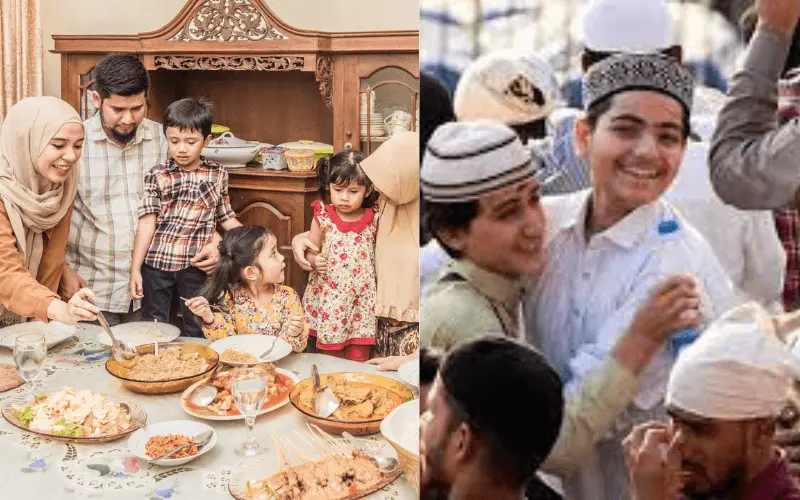
Eid Al-Fitr marks the end of Ramadan and is celebrated with great joy and festivity. Muslims gather for special prayers in the morning which is called Eid Prayer., followed by communal meals, social gatherings, and family and friends picnics, It’s a time of giving, where families offer charity and gifts to those in need, fostering a sense of unity and generosity. Eid is a time of immense joy and celebration.
Wanna know more about this amazing festival? then click the link below
Eid ul Fitr| Unraveling 10 Must-Know Secrets for Eid Celebration
Conclusion
when Ramadan ends, Eid Al-Fitr arrive a time for happiness and thanks. We’ve learned to care for others and be our best selves. Even though Ramadan finishes, its teachings stay with us, reminding us to be kind and keep growing.

